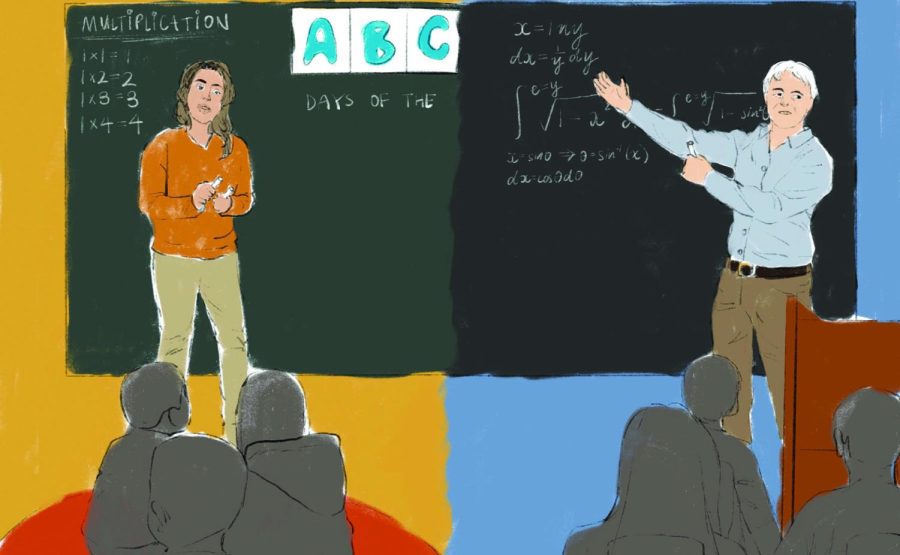The gender divide in education levels
Arnold Schwarzenegger’s performance in “Kindergarten Cop” presents a situation that is not seen in most elementary and middle school classrooms because teaching younger children is a woman-dominated field.
In the movie “Kindergarten Cop,” a macho guy participating in what is traditionally considered feminine behavior can be seen as an absurd and comical idea, said Allyson Weseley, coordinator of research at Roslyn High School in New York.
According to Hilary Conklin, professor of teacher education at DePaul University, teaching has traditionally been a field dominated by women.
“[Teaching] was a profession that women went into before they had children and families,” Conklin said.
According to Sara Chadwick, assistant professor of gender and women’s studies and psychology at the University of Wisconsin-Madison, men are seen as less nurturing and less capable of fulfilling a teacher role because they are not usually encouraged to be caretakers of young people.
“Being a professor at a university often requires a Ph.D., and we often think of men as being the ones who pursue these very difficult, highly intellectual careers,” Chadwick said.
According to Conklin, the stereotype that elementary-level teaching is women’s work removes status from the role.
“Many people grow up thinking that women do particular gendered roles, including caretaking in the home, as well as being teachers and being nurturers, and so it continues to create this sense that [teaching is] not as prestigious a profession,” Conklin said.
Men can be discouraged from elementary-level teaching and choose to educate at the high school or collegiate levels, which hold more prestige, Conklin said.
“[There is a] perception that when you’re working with younger children, it’s not perceived as high-status work,” said Conklin. “And typically as you get either in high school or the college level, it’s perceived to be more rigorous, the content is more extensive or deeper.”
Gender can be a barrier to the connections between students and teachers, which impacts academic performance, Conklin said.
“In school, [boys] often see fewer role models in the classroom,” said Conklin. “You often see girls performing better at the elementary level in many cases because sometimes boys just don’t connect to their [female] teachers.”
According to Chadwick, people may think women make better teachers because their experience includes having women as teachers, which allows women to more easily imagine themselves in those roles.
The gender divide in teaching can discourage students from seeking professions in education levels that are dominated by another gender, Chadwick said.
“You may not see role models that are in your position, but it doesn’t mean that you’re not awesome and smart and that you can’t do it,” said Chadwick. “It’s just important to find the right role models and important to find the right mentors.”


